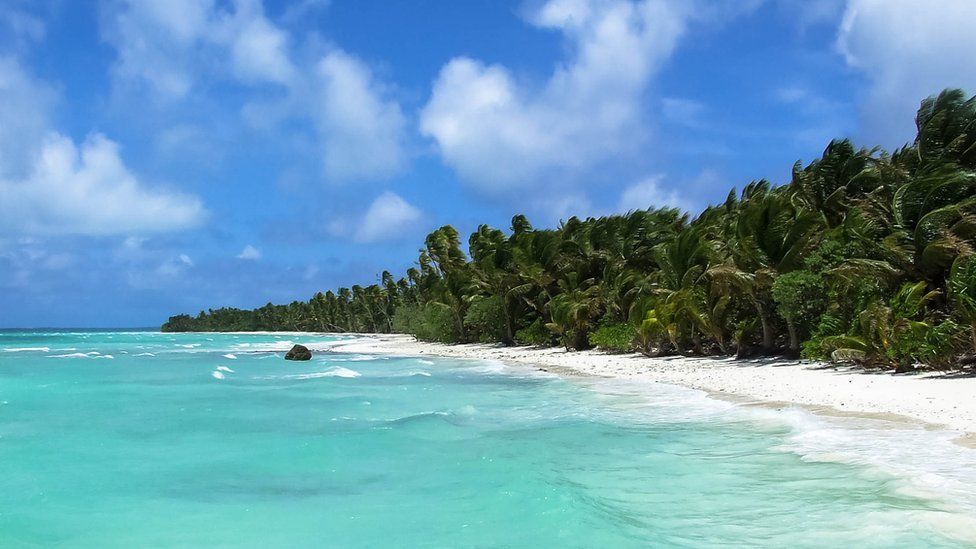Marshall Islands warned against adopting digital currency
- Published

The Republic of the Marshall Islands has been warned against adopting a digital currency as a second form of legal tender.
The International Monetary Fund (IMF) said the country, which consists of hundreds of islands in the Pacific Ocean, should "seriously reconsider".
Currently, only the US dollar counts as legal tender in the islands.
A law to adopt a digital currency named "Sovereign" alongside the dollar was passed in February.
The first virtual coins are due to be issued to members of the public via an initial coin offering (ICO) later this year.
However, IMF directors said the potential benefits of the move were much smaller than the potential costs of "economic, reputational and governance risks".
"[Marshall Island] authorities should seriously reconsider the issuance of the digital currency as legal tender," wrote the directors in their report, which was first spotted by cryptocurrency news site Coindesk.
There is just one domestic commercial bank in the country and it is at risk of losing its only correspondent banking relationship with another bank in the US.
That relationship allows the Islands to transfer dollars in and out of the country.
It highlighted the Marshall Islands' dependence on foreign aid, and the fact that the country is vulnerable to natural disasters as well as sea level rise linked to climate change.
Adopting a digital currency as an official form of legal tender would threaten both financial integrity and the nation's key relationship with the US bank. The result could be disruption to foreign aid, according to the IMF.
Bitcoin explained: How do cryptocurrencies work?
The global financial organisation was expressing concern because it was aware of traditional banks' wariness around digital currencies, said David Gerard, author of Attack of the 50 foot Blockchain.
Those banks may, for example, associate crypto or digital currencies with criminal activity, including money-laundering, because the digital currency networks have been designed to move coins or tokens around at great speed.
"You just can't control the stuff," Mr Gerard told the BBC. "Tokens are really, really liquid, that's the whole point."
This could give the US correspondent bank cause to rethink its relationship with the Marshall Islands, he explained.
"The IMF is not strong-arming the Marshalls, what they're doing is describing what will obviously happen if they proceed - the large correspondent bank will be quite worried," he added.
- Published6 September 2018
- Published27 October 2023